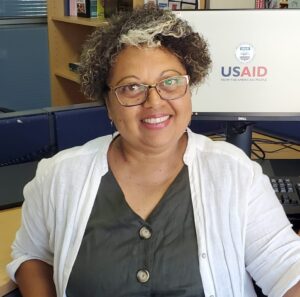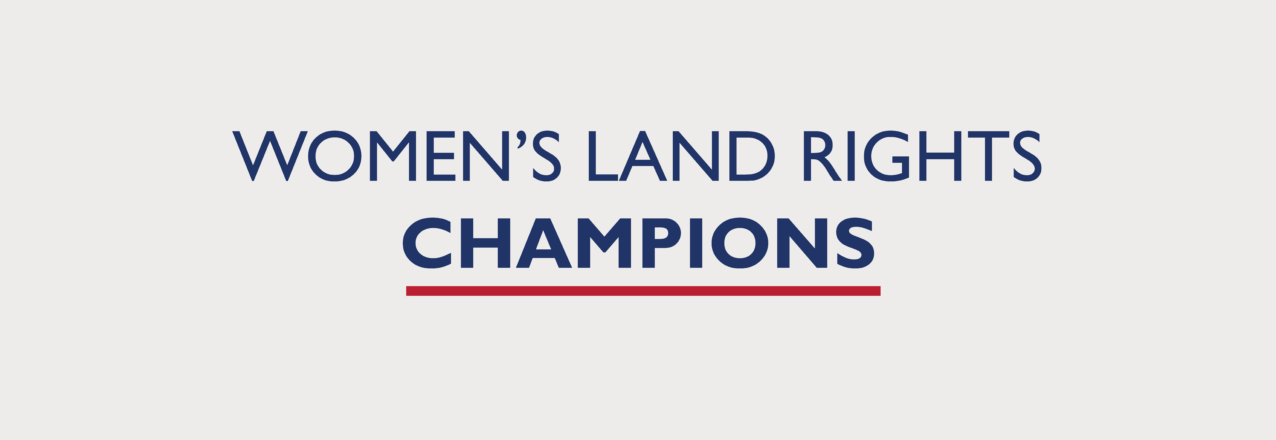This series features Women’s Land Rights Champions within USAID to learn more about their work. This month’s Champion is Paula Pimentel of USAID/Mozambique.
Tell us about yourself
 I am a senior agricultural specialist at USAID/Mozambique with more than 30 years of experience in agricultural development, including land rights and resource governance. I have an MSc in Animal Production from the University of Pretoria and an Honors degree in Veterinary Medicine from Eduardo Mondlane University.
I am a senior agricultural specialist at USAID/Mozambique with more than 30 years of experience in agricultural development, including land rights and resource governance. I have an MSc in Animal Production from the University of Pretoria and an Honors degree in Veterinary Medicine from Eduardo Mondlane University.
Why are women’s land rights and resource governance important to your work? And to other USAID development work?
In Mozambique and other African countries, land and natural resources are the most valuable economic asset for rural women. Being able to access and control land-related assets is critical for women’s self-reliance and a pathway to economic growth. Strengthening women’s rights to land, and women’s ability to influence resource governance, leads to better agricultural productivity and resource management. This, in turn, contributes to many USAID development goals like improved food security and climate change mitigation and adaptation.
What are some of the biggest challenges in helping women secure land rights and what are some things being done to overcome them?
A main challenge is a lack of gender equality in land legislation or weak implementation of laws and policies. But even when the legal and policy framework provides for women’s land rights, women face many other challenges like lack of knowledge about their rights and land registration processes, unequal inheritance practices, biased dispute resolution mechanisms, restrictive social norms, and vulnerability to gender-based violence. USAID supports consultations and data analysis to improve inclusiveness in the land policy reform process in Mozambique. We are supporting programs that work directly with women, communities, and gender champions to increase women’s access to information and participation in community land governance and to shift restrictive social norms. USAID is also partnering with the private sector so that rural women in Mozambique can have secure land rights and turn these rights into concrete opportunities for economic security.
What are some of USAID’s successes in the area of women’s land rights?
USAID is partnering with one of Mozambique’s largest agroforestry companies to develop innovative business models that benefit companies and smallholder farmers. Over the past year, around 4,000 people’s land access and land use rights were formalized through the program, enabling those individuals to engage in economically viable use of the land. Over 67 percent of those farmers are women, who are now able to access and control sustainable livelihoods.
Anything else you want to share?
Land documentation and inclusive community land governance are transformative for smallholder farmers and communities as a whole, decreasing conflict and increasing investment and overall economic growth in rural areas. The USAID Mozambique Mission is keen to pursue a pathway that will continue to support and improve the country’s land policy environment, aiming at a more gender equitable and prosperous use of land by Mozambican women.
I have personally learned a lot by working with the USAID-funded ILRG Activity and I thank Thais Silveira Bessa, the activity’s Gender Specialist, for sharing key field assessments with a strong gender lens on women’s land rights in Mozambican rural communities.


